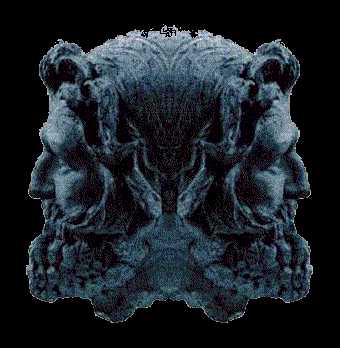 |
NODE.801 Genealogical Sources on Materialism for the Study of the Writings of Karl Marx Ge |
 |
NODE.801 Genealogical Sources on Materialism for the Study of the Writings of Karl Marx Ge |

![]()

"Once into his
library, however, and having fixed his one eyeglass in the corner of
his eye, in
order to take your intellectual breadth and depth, so to speak, he
loses
that self-restraint, and unfolds to you a knowledge of men and things
throughout
the world apt to interest one. And his conversation does not run in one
groove,
but is as varied as are the volumes upon his library shelves. A man can
generally be judged by the books he reads, and you can form your own
conclusions when I tell you a casual glance revealed Shakespeare,
Dickens, Thackeray, Moliere, Racine, Montaigne, Bacon, Goethe,
Voltaire, Paine; English, American, French blue books; works political
and philosophical in Russian, German, Spanish, Italian, etc., etc."
Chicago Tribune reporter's comments upon interviewing Marx,
January
5, 1879
| Textual Sources | Aeschylus | Anaxagoras | Aristotle | Pierre Bayle |
| J.E. Cairnes | Henry C. Carey | Democritus | Duns Scotus | Epicurus |
| Feuerbach | Gassendi | Hegel | Luesippus | Lucretius |
| Proudhon | Shakespeare | Spinoza |
"Marx
and the Foundations of the Critical Theory of Morality and Ethics"
Cultural Logic, Vol. 2.,
no. 2 which contains some references to the sources of Marx's
materialism.
Bibliography on Karl Marx and
Marxism from Stanley Aronowitz's course "Marx" 1996.
Prometheus Bound Aeschylus
An enhanced version I have been working on from time to time.
Marxism-related
lists and archives
Electronic Texts
in Philosophy
The Marx Engels
Archive
Prometheus
Bound
The
Seven Against Thebes
The
Persians
The Choephori
Complete (Existing) Plays.
"The Eleatics, as the first discoverers of the ideal forms of substance, who themselves still apprehended the inwardness of substance in a purely internal and abstract, intensive manner, are the passionately enthusiastic prophetic heralds of the breaking dawn. Bathed in simple light, they turn away indignantly from the people and from the gods of antiquity. But in the case of Anaxagoras the people themselves turned away indignantly from the wise man and declared him to be such, expelling him from their midst. In modern times Anaxagoras has been accursed of dualism. Aristotle says in the first book of the Metaphysics that he uses the nous like a machine and only resorts to it when he runs out of natural explanations. But this apparent dualism is on the one hand that very same dualistic element which split the heart f the state in the time of Anaxagoras, and on the other hand it must be understood more profoundly. The nous is active and is resorted to where there is no natural determination. It is itself the non ens [not-being] of the natural, the ideality. And then the activity of this ideality intervenes only when physical sight fails the philosopher, that is, the nous is the philosopher's own nouz, and is resorted to when he is no longer able to objectify his activity. Thus the subjective nous appeared as the essence of the wandering scholar, and in it power as ideality of real determination, it appears on the one hand in the Sophists and on the other in Socrates" (Notebooks on Epicurean Philosophy, 436)
According
to Diogeneres
Laertius "Among the early philosophers....[Epicurus] favorite was
Anaxagoras, although he occasionally disagreed with him..."
Pierre Bayle not only prepared the reception of materialism and of the philosophy of common sense in France by shattering metaphysics with his skepticism. He heralded the atheistic society which was soon to come in to existence by proving that a society consisting only of atheists is possible, that an atheist can be a man worthy of respect, and that it is not by atheism but by superstition and idolatry that man debases himself. To quote a French writer, Pierre Bayle was 'the last metaphysician in the sense of the seventeenth century and the first philosopher of the eighteenth century'" (Holy Family 157-158).
The Pierre Bayle Home
Page
Correspondences of
Pierre Bayle (French)
Bayle's
Dictionnaire historique et critique
Pensées
diverses sur la comète: Avis au lecteur
Philosophical
Commentary on the words of the Gospel, 'Compel them to come in'
Henry
Carey: The Slave Trade, Domestic and Foreign (excerpt)
Principal
Doctrines Translated by Robert Drew Hicks
Vatican Sayings
Letter to
Pythocles
Letter to
Menoeceus Translated
by Robert Drew Hicks
Letter to
Idomeneus
Letter to
Herodotus
Fragments
Epicurus' Last
Will
The
Philodemus Project
Epicurus and Epicurean
Philosophy
The Garden
The Organisation
of the Logic by Jean Hyppolite
Shakespeare:
Timon
of Athens (Marx's
favorite and often quoted
Spinoza's
Ethics
Studia
Spinoziana
A
Theologicol-Politico Treatise
Ethica (latin)
Ethics
On the Improvement
of the
Understanding: Treatise on the Emendation of the Intellect
TRACTATUS
POLITICUS.] Edited with an Introduction by R. H. M. Elwes Translated by
A. H. Gosset Published
by G. Bell & Son London 1883
![]()


Copyright © 1996-2007
by
The Institute/NODE.801/The Summer
Club

![]()